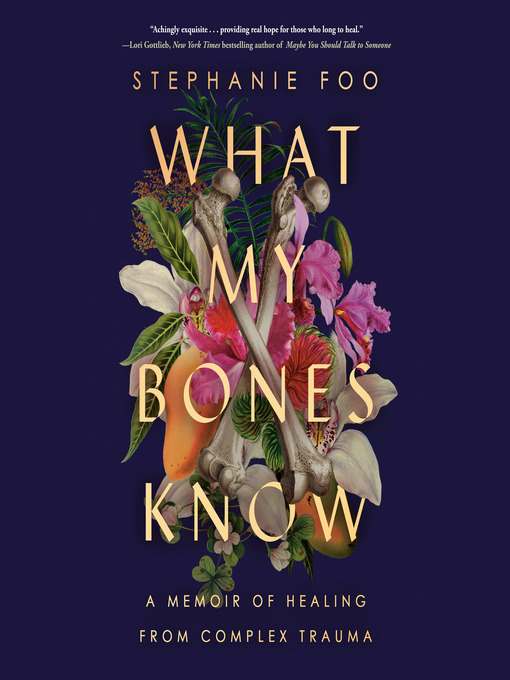

Ultimately, she discovers that you don't move on from trauma - but you can learn to move with it. She returns to her hometown in California to investigate the effects of immigrant trauma on the community, and she uncovers family secrets in the country of her birth, Malaysia, to learn how trauma can be inherited through generations. In this deeply personal and thoroughly researched account, Foo interviews scientists and psychologists and tries a variety of innovative therapies. She found limited resources to help her, so Foo set out to heal herself, and to map her experiences onto the scarce literature about C-PTSD. She thought she'd moved on, but her new diagnosis illuminated the way her past continued to threaten her health, relationships, and career.

Both of Foo's parents abandoned her when she was a teenager, after years of physical and verbal abuse and neglect. After years of questioning what was wrong with herself, she was diagnosed with complex PTSD - a condition that occurs when trauma happens continuously, over the course of years. But behind her office door, she was having panic attacks and sobbing at her desk every morning. By age thirty, Stephanie Foo was successful on paper: She had her dream job as an award-winning radio producer at This American Life and a loving boyfriend.

I want to have words for what my bones know. Every cell in my body is filled with the code of generations of trauma, of death, of birth, of migration, of history that I cannot understand. A searing memoir of reckoning and healing by acclaimed journalist Stephanie Foo, investigating the little-understood science behind complex PTSD and how it has shaped her life.


 0 kommentar(er)
0 kommentar(er)
